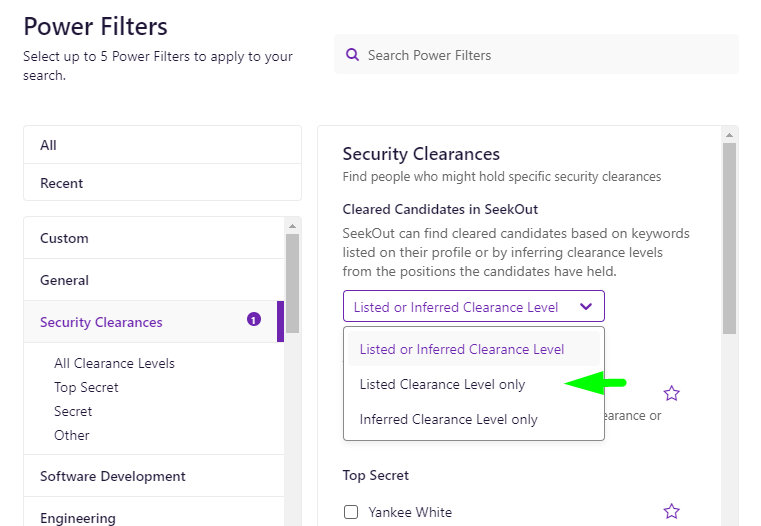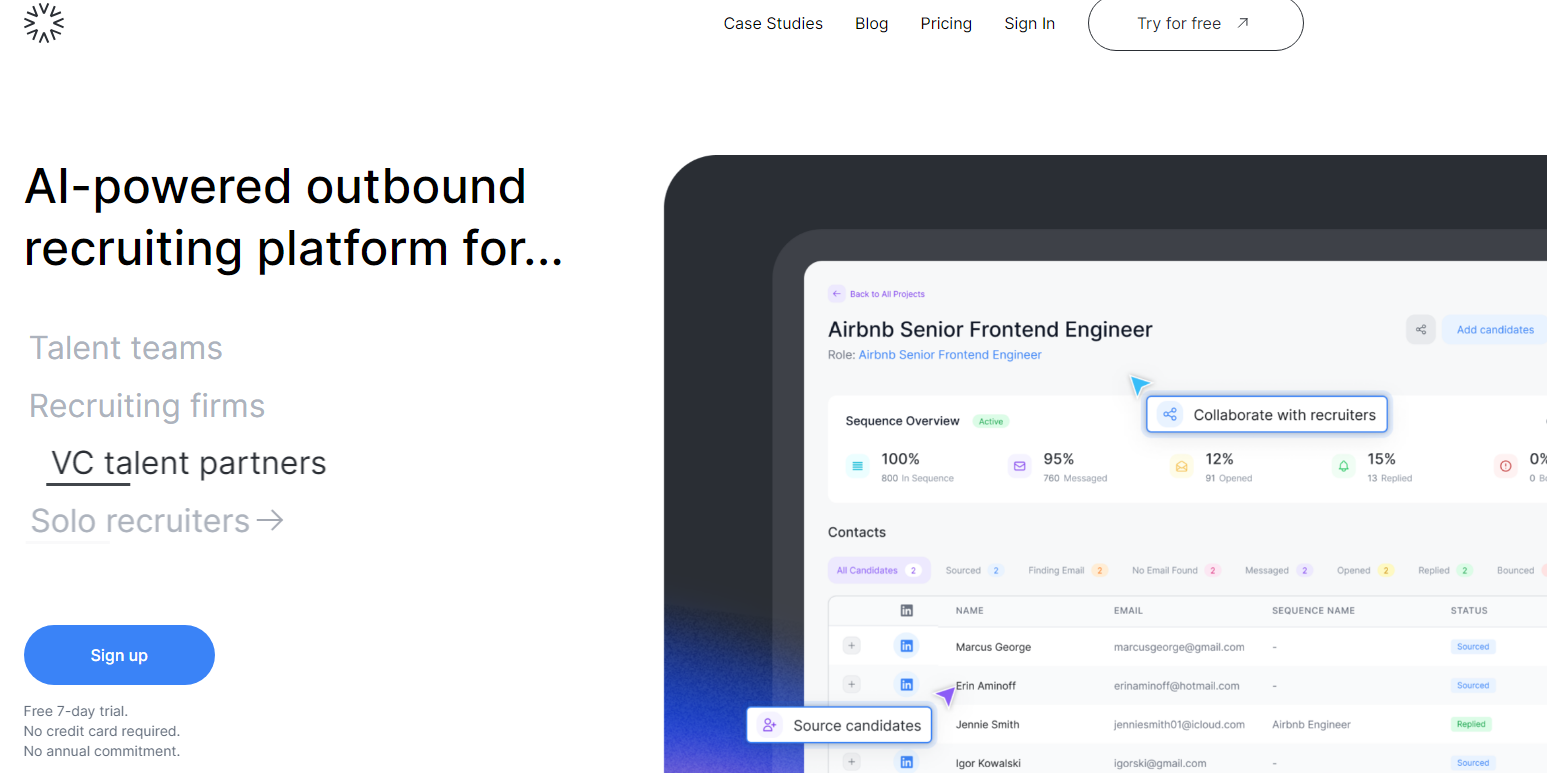Government contracts are the lifeblood of many businesses, providing a stable and often lucrative revenue stream. However, securing these contracts can be a daunting, resource-intensive task involving several complex steps and many people from finding opportunities to writing proposals, locating the key employees, and ultimately, staffing the project.
In this digitally advanced era, Artificial Intelligence (AI) and Machine Learning (ML) are playing increasingly pivotal roles in streamlining this process of winning government contracts.
I hope this article will guide you through some of my favorite AI tools and practices that can significantly boost your chances of not just winning a government contract but also effectively filling it with top-notch talent.
Using AI to Finding Contracts to Bid On
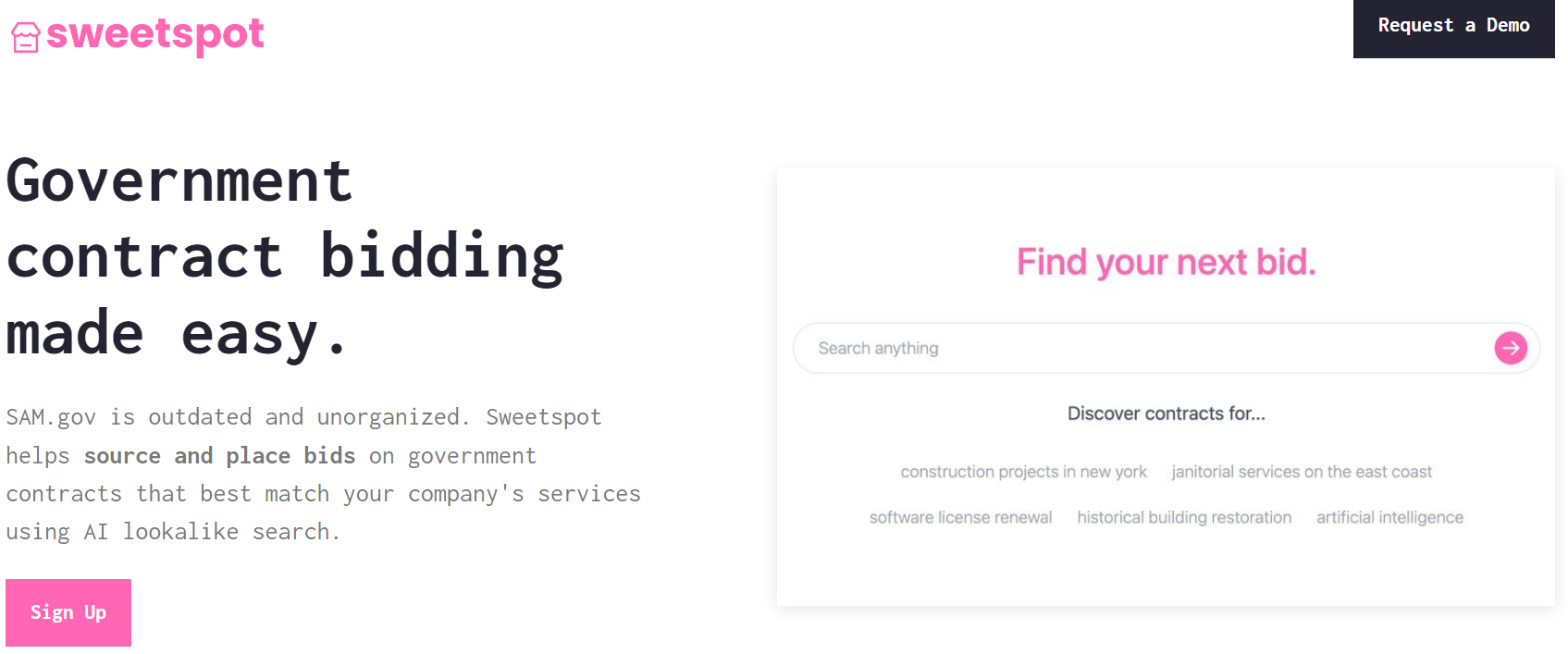
Before you can win a contract, you need to find it. The search process through government websites is extremely daunting. A new company that just graduated from Y Combinator Sweetspot (YC S23) makes this tedious process easier through AI-powered search algorithms. They provide a comprehensive list of available government contracts tailored to your industry and capabilities. It also learns from your search behavior and contract interaction history, the platform offers more relevant opportunities over time. SweetSpot is a great AI tool to help you spend less time looking for opportunities and more time preparing for them.
Using AI for Proposal Writing and Capture
The intricacies involved in proposal writing for government contracts cannot be understated. The process is notoriously convoluted and strenuous, often involving multiple stages—from understanding the request for proposal (RFP) requirements to aligning your capabilities and drafting a compelling narrative. This complexity is further compounded by the tight deadlines and the sheer volume of compliance requirements.
Moreover, the proposal often passes through numerous internal checkpoints—technical reviews, management reviews, financial, and legal checks—each adding time to an already tight schedule. Additionally, the risk of human error in meeting all the compliance requirements, or simply forgetting to include key information, can have devastating consequences for your bid. The result? An incredibly intense, stress-laden process that consumes considerable resources and yet doesn’t guarantee a win. Many companies burn thousands of hours of time chasing after proposals each year.
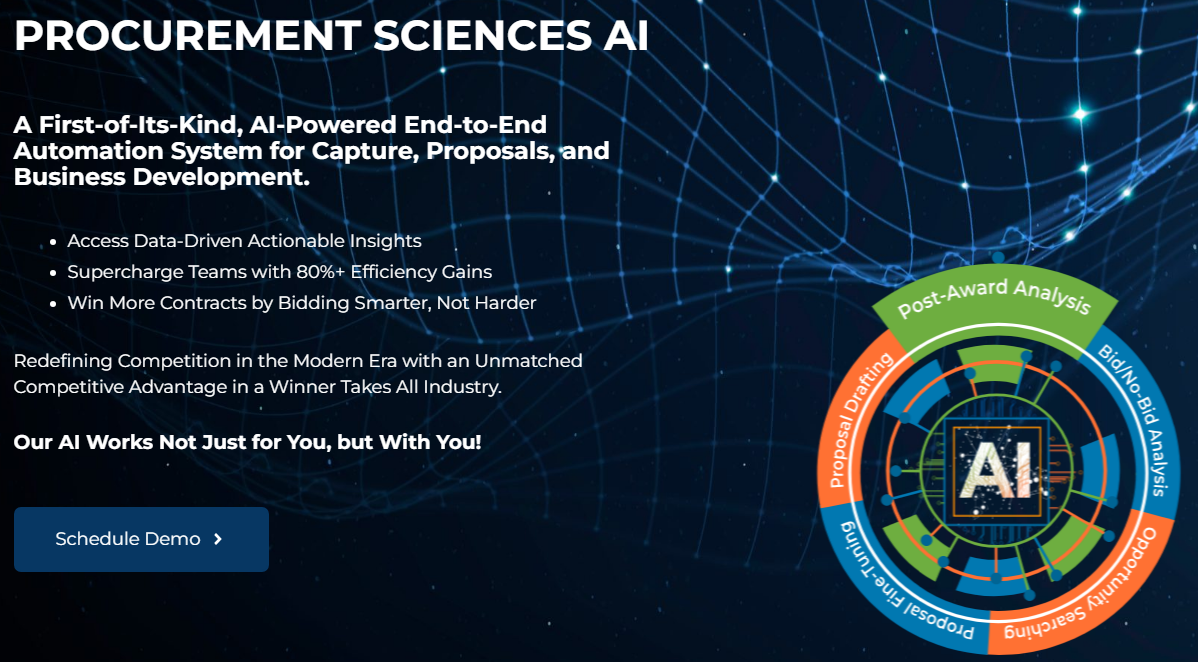
This is where AI comes into play, transforming a labyrinthine process into a streamlined, efficient operation. Platforms like Procurement Sciences AI employ advanced AI algorithms to scan past successful contracts, offering valuable insights into what works and what doesn't. The platform uses predictive analytics to offer strategic guidance for your proposal. What are the evaluation criteria that are given the most weight by a certain agency? What kind of language or technical details have historically resonated with specific types of contracts? Procurement Sciences answers these questions, enabling you to tailor your proposals more effectively.
Rogue takes a different but complementary approach by focusing on the actual writing and editing process. Employing AI and machine learning algorithms, Rogue's platform can produce draft proposals that already conform to various standards, guidelines, and required formats. Gone are the days when you had to start from scratch or rely on outdated templates. The platform allows you to incorporate pre-defined modules or sections that have proven to be effective in similar bids, making your proposal not just compliant but also compelling.
Procurement Sciences also goes beyond generic insights, it seems to offer a tailored strategy for your unique needs. It uses AI to map your organizational capabilities to the specific requirements of a given RFP. This level of customization ensures that you're not just throwing a generic proposal into the ring, but are presenting a well-aligned, focused bid that speaks directly to the agency's needs and challenges. Another cool thing that they offer is real-time Competitive Intelligence. As you're preparing your proposal, ProcurementSciences can provide real-time updates on what your competitors are likely strategizing based on their past bids and win rates. This competitive edge enables you to adapt your proposal proactively, rather than reacting to the competition after the fact.
Both Procurement Sciences and Rouge ensure compliance through AI. By integrating the latest regulations and stipulations directly into its analytics, it ensures that your proposal is compliant from the word go, reducing the risk of disqualification due to oversight.
Perhaps one of the most significant advantages of incorporating AI in the proposal process is the ability to produce more proposals in less time without compromising quality or hiring additional team members. By automating various components—from writing to compliance checks—you can respond to more RFPs than ever before. In a numbers game, where each proposal enhances your chance of securing a contract, AI significantly increases your odds of success.
If you’ve been stuck in the never-ending cycle of proposal development, laboring through endless compliance lists, and struggling to meet deadlines, the integrated AI capabilities of Procurement Sciences and Rogue offer a way out. This isn’t just a shift in how you create proposals; it’s a transformative approach to winning government contracts.
The Crucial Phase: Filling the Jobs You've Won using AI
Securing a government contract is only half the battle; fulfilling it effectively is another challenge altogether. Staffing for these contracts often requires a high level of expertise and specialization. In sectors like aerospace, defense, and intelligence, candidates with security clearances are often a requirement, making the talent pool significantly smaller and more competitive. The traditional methods of sourcing talent—job boards, referrals, or recruitment agencies—often fall short when it comes to these unique demands.
This is where one of my favorite recruiting tools SeekOut steps in. One of the standout features of SeekOut is its machine-learning-based analysis for identifying candidates likely to hold security clearances. Given the importance of such clearances in many government contracts, especially in sectors like defense and intelligence, this feature is a game-changer. By analyzing factors like previous employers, job roles, and locations, SeekOut can infer the likelihood of a candidate holding a specific type of security clearance. This opens up a vast, previously hidden pool of talent that can be crucial for fulfilling specialized government contracts.
Here is a breakdown of what I found on the platform:
3.7 Million candidates that have some sort of security clearance across all the levels.
69.9K – TS/SCI FSP
213.6K – TS/SCI CI Poly
830.7K with a TS/SCI
1.4 million with a TS
1.4 million with a Secret
366.9K with a Public Trust
Diversity Filters and Ethical AI
SeekOut also understands the increasing importance of diversity and inclusion in government contracting. Its Diversity Filters are machine-learning powered and scan dozens of data points to categorize candidates accurately. It’s not just about finding the right candidate; it’s about finding the right diverse mix of candidates that align with both the project requirements and larger societal goals. Additionally, the platform has robust ethical AI guidelines, ensuring that its machine-learning algorithms are unbiased and compliant with responsible AI practices.
Automating Outreach with SeekOut Assist
Once you've identified the right candidates, reaching out to them effectively is crucial. SeekOut Assist uses generative AI to tailor outreach messages based on both the job description and the candidate's profile. This level of personalization increases the likelihood of engagement, speeding up the recruitment process.
Real-time Pipeline Insights
With its connected Applicant Tracking System (ATS), SeekOut provides AI-driven insights into how candidates are moving through your recruitment pipeline. This real-time data helps recruiters and talent acquisition leaders adapt strategies to meet candidate experience, diversity, and overall hiring goals.
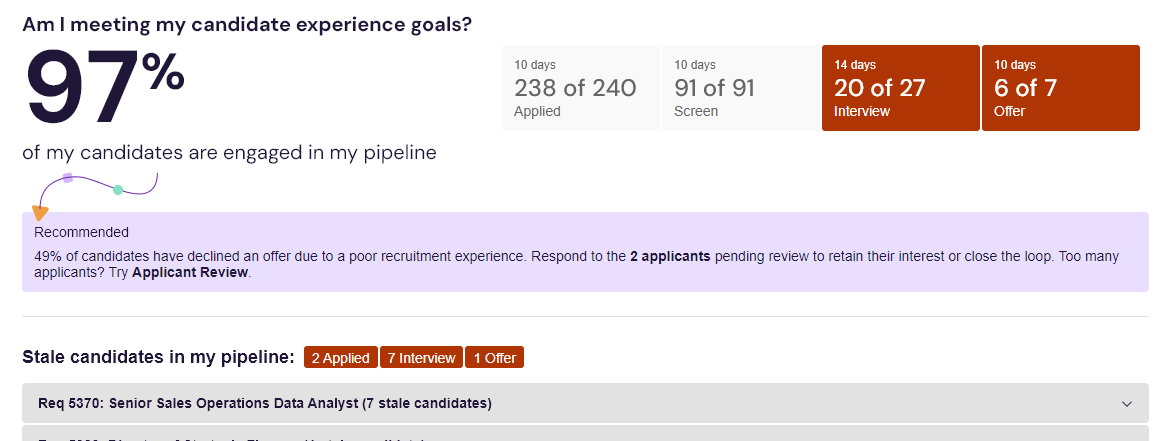
In the highly specialized and competitive arena of government contracting, SeekOut offers a technological edge in finding, recruiting, and retaining top-tier talent. Its machine learning algorithms and ethical AI practices make it a comprehensive solution for sourcing candidates with security clearances, specialized skills, and diverse backgrounds. By integrating SeekOut into your talent acquisition strategy, you're not just filling roles; you're ensuring the successful execution of your government contracts.
One of my other favorite tools that I have run across is a company called Betterleap.
Betterleap is an AI-driven sourcing tool designed to make the recruitment process not just faster, but also more effective. As it discovers what you are searching for it uses its cutting-edge algorithms to automate its sourcing and bring you new candidates each day that are ready for you to reach out to. It even has a section for cleared professionals, on top of that one of my favorite parts about Betterleap. It has an unlimited number of emails it can find. Let me say that again. There is no max... It's unlimited email that you can find to help you reach the right people!
ChatGPT: Revolutionizing Proposal Writing and Candidate Sourcing for Government Contracts

Navigating the Proposal Maze with ChatGPT
Writing a proposal for a government contract can be an intricate and demanding process. Each proposal must adhere to stringent guidelines, feature specific technical language, and meet a myriad of compliance requirements. Errors or omissions can be costly, resulting in lost opportunities and even penalties. In this context, ChatGPT can be a game-changer. With its capabilities for text generation, ChatGPT can assist teams in drafting precise, compliant, and compelling proposals. Whether it's generating sections of the proposal based on inputs or fine-tuning the language to meet government standards, ChatGPT can significantly reduce the time and effort required to prepare a winning proposal.
Boosting Compliance and Efficiency
The power of ChatGPT lies in its advanced Natural Language Processing (NLP) capabilities, which can be trained to understand the specific compliance language and requirements of government contracts. By leveraging these capabilities, teams can ensure that their proposals are compliant right from the start, eliminating costly rounds of revisions and reducing the risk of non-compliance. Moreover, its automation capabilities mean that teams can get more proposals out the door faster, increasing the chances of winning contracts.
Sourcing Cleared Candidates: A New Frontier
Finding candidates with security clearances for government contracts is another area where ChatGPT can offer significant advantages. The language model can be programmed to sift through resumes, LinkedIn profiles, and other databases to identify likely candidates for positions that require security clearance. By analyzing the text within these documents—such as job titles, responsibilities, and skills—ChatGPT can generate a shortlist of candidates who fit the bill. This reduces the manual workload on HR teams and accelerates the recruitment process.
Automating Outreach for Recruitment
Once potential candidates are identified, ChatGPT can assist in the outreach process as well. With its capabilities for personalized text generation, ChatGPT can craft individualized messages or emails that are likely to resonate with each candidate, increasing the chances of a positive response. This level of personalization, which would be incredibly time-consuming manually, can be achieved in a fraction of the time with ChatGPT.
Well, folks, I hope you get as excited as I am about the game-changing impact of AI in the world of government contracting. Let me tell you, this isn't just fancy tech talk; this is real-world, roll-up-your-sleeves and get-to-work kind of change we're talking about. The fact is, AI tools like SweetSpot, Procurement Sciences, Rogue, SeekOut, Betterleap, and even ChatGPT are transforming the way we do business. They're like the super-tools in your toolbox you didn't even know you needed.
So, why am I so excited? Because these tools make things happen. They help you find contracts you'd otherwise miss. They guide you through the labyrinth of proposal writing, making sure what you submit is not just compliant but darn near irresistible. And once you win that contract, they help you find the right people for the job—even those hard-to-find, Top Secret cleared professionals.
It's like having an extra set of hands—or maybe a whole team—working round the clock to ensure you're not just participating in the government contracting arena, but you're owning it. So, if you've been around the block in the government contracting world, or even if you're just starting, these AI tools aren't just nice-to-haves. They're must-haves. And if you're not using them yet, what are you waiting for? Time to get in the game, my friends. Let's go win some contracts and make some real impact out there!
Need to hire? We can help! This article was written by Benjamin Mena who is a Managing Partner of Select Source Solutions which is a boutique executive recruitment firm specializing in Data Science, Cloud, Cyber Security, Talent Acquisition, and Government Contracting.
If you’d like to have a conversation about employee retention, growing your team, or hiring plans for the rest of the year, please get in touch! Benjamin@selectsourcesolutions.com
Join me on upcoming episodes of the Elite Recruiter Podcast on Apple or Spotify!


